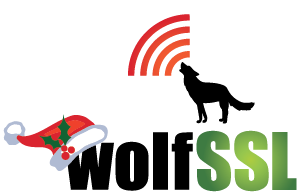We are excited to announce the release of wolfMQTT v1.21.0, which introduces support for NetX and ThreadX RTOS platforms as its headline feature. This release continues our commitment to providing a lightweight, secure, and feature-rich MQTT client implementation for embedded systems and IoT applications. What’s New in v1.21.0 The wolfMQTT v1.21.0 release includes several significant […]
Read MoreMore TagCategory: wolfMQTT
wolfMQTT: Using wolfCrypts implementation of ML-KEM and ML-DSA
A long time ago, we added support for Kyber and Falcon in wolfMQTT. That support used an integration into liboqs for the Kyber and Falcon implementation. Things have changed since then! Kyber is no longer Kyber, it is now ML-KEM. Falcon will soon become FN-DSA, but since then rock solid standards for ML-DSA have been […]
Read MoreMore TagAnnouncing wolfMQTT v1.20.0: Now with WebSocket Support
We are excited to announce the release of wolfMQTT v1.20.0, which introduces WebSocket support as its headline feature. This release continues our commitment to providing a lightweight, secure, and feature-rich MQTT client implementation for embedded systems and IoT applications. What’s New in v1.20.0 The wolfMQTT v1.20.0 release includes several significant enhancements: WebSocket Support The most […]
Read MoreMore TagAnnouncing WebSocket Support in wolfMQTT
We are excited to announce that wolfMQTT now fully supports MQTT over WebSockets, including both standard WebSockets and secure WebSockets (WSS). Read more about websockets here. This significant enhancement allows wolfMQTT clients to connect to MQTT brokers through WebSocket endpoints, expanding the versatility of our lightweight MQTT client implementation. Why Websockets Matter for MQTT WebSockets […]
Read MoreMore TagwolfMQTT Releases v1.19.1
wolfSSL is proud to announce the release of wolfMQTT v1.19.1! This release fixes an issue in the Espressif example and corrects some documentation issues. Release 1.19.1 has been developed according to wolfSSL’s development and QA process and successfully passed the quality criteria. Check out the ChangeLog from the download for a full list of features […]
Read MoreMore TagMQTT v5.0 versus v3.1.1
wolfMQTT was updated to support the draft MQTT v5.0 version of the specification in 2018. The specification was finalized in 2019, and wolfSSL has been a proponent of the new version ever since! Enhanced Session Management: MQTT v5.0 introduces improved session management, allowing clients to resume sessions seamlessly. This feature ensures continuity and reliability, especially […]
Read MoreMore TagwolfMQTT Releases v1.19.0
In the realm of lightweight MQTT (Message Queuing Telemetry Transport) implementations, wolfMQTT continues to push the boundaries of efficiency and versatility. With the release of version 1.19.0, wolfMQTT introduces several pivotal features that enhance its performance, usability, and integration capabilities. Enhanced Stress Test Module: The incorporation of an advanced stress test module empowers developers to […]
Read MoreMore TagwolfMQTT – Now Available as an Espressif Managed Component Includes AWS IoT MQTT Example
Not long ago, we announced preview support for new Espressif Managed Components in addition to the core wolfssl managed component. Today you can add MQTT capabilities to your toolbox by visiting this link: https://components.espressif.com/components/wolfssl/wolfmqtt If the ESP Registry page does not fully load with all the text, try holding down the “ctrl” key when pressing […]
Read MoreMore Tag
